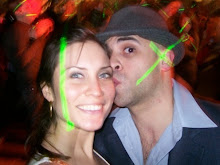Willard McCarty's article covers the main aspects of humanities computing's history, its history and the major questions intrinsic to the (non)discipline (see Orlandi), attempting to make sense of "how our insight is sharpened and imaginations empowered to gain genuinely "new liberties of action" from computing, and how these liberties may be used in refurbishing the humanities for an electronic age". he begins by tracingthe historical developments in the field, from Father Busa tomistic project to the internet and the implementation of computing in the classrooms. He then moves on to discussing the different branches in the field. These branches are the algorythmic (geared to "the development of software for the analysis of source materials"), the metalinguistic (focused on devising "computationally rigorous metalanguages by which computationally elusive entities may be tagged and so reliably processed"), and the representational ("arranging, formatting or otherwise transforming the appearance of data"). McCarty then outlines the fundamental epistemological question surrounding humanities computing: how to approach past works/artifacts and "non-computational things of the present"? How should humanities computing relate with other academic cultures? and how we deal with need, to use McGann's words, of "imagining what we don't know"?
In his conclusion, McCarty states that we should not attempt to answer the question of what humanities computing is, but rather explore it and refine our understanding of it. Such a proposition, like many we've come across this semester, reveal the curious dynamics of a field that is still somewhat in an embryonic phase, but nevertheless attempts to develop firm theories about itself. McGann and his constantly coming up with new theories (as the Prof. relates), repeatedly contradicting himself in the process, is perhaps the best exemplification of this phenomenon.
Tuesday, March 18, 2008
Subscribe to:
Post Comments (Atom)

No comments:
Post a Comment